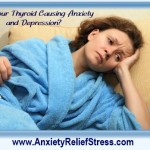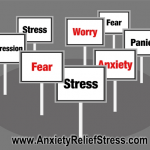Regarding age, anxiety attacks know no boundaries. Anxiety attacks in children is a common problem. Children and adults alike are subject to experiencing the sometimes terrifying anxiety symptoms. If these attacks seem to be brought on without an obvious cause, they are recurrent and severe, there could be an underlying anxiety disorder. Another key is an disproportionate reaction to a problem. Keep a watchful eye out for any signs of an anxiety problem. If you suspect your child is having anxiety attacks or an anxiety disorder, seek the advice of your primary care physician or pediatrician for treatment options.
It is imperative to arm yourself with the tools necessary for assessing anxiety attacks in children. Anxiety, in any form, could be related to an anxiety disorder and the quicker it’s detected, the quicker treatment can be started. Bedwetting, frequent panic and fear, tantrums, excessive crying, fear of being embarrassed or making mistakes and avoiding school related activities and summer camps all could be indicators there is an underlying anxiety disorder. Lack of self-esteem and confidence, problems with making friends and being very shy could also be anxiety related. Then you’ve got to watch out for nightmares or night terrors, compulsive behaviors and a defiance related to any routine or lifestyle change. Of the actual physical symptoms the anxious child could be experiencing frequent and unexplained headaches or stomach issues.
The above signs and symptoms are used to determine if your child might be suffering from an anxiety disorder, however the anxiety attack itself is very different. If your child is experiencing a panic attack some symptoms might include hot flashes or chills, a strong gush of overwhelming and overpowering panic, the feeling of losing control, trouble breathing and maybe a choking sensation. Hyperventilation, shaking, trembling, repetitive movements like pulling or tugging on their clothing. He/she may also experience a chest pain sensation or fluttering heart.
Every child is going to react in a different manner and no two children are exactly alike. This is why it’s important to educate yourself on exactly what to look out for regarding anxiety attacks in children. They don’t have the wherewithal to inform us of a diagnosis, but they can tell us some of the symptoms. The others we have to discover on our own.
If you recognize these symptoms of anxiety attacks or the possible emotions and physical findings associated with panic disorders, it’s best to take immediate action. Consult a qualified medical professional to get a definitive diagnosis and any further testing that may be required. You can also consider self-help methods described in a wide variety of books and other mediums for treating anxiety disorders and panic attacks. Using these types of methods often enriches the parent/child relationship, as well as gives the parents a more clear understanding of the disease, treatments and prognosis. Play therapy is also a handy tool, but must be used only if you are completely sure this can be accomplished without further exacerbating the anxiety issues.
This type of therapy allows the child to be subjected to circumstances known to cause anxiety reactions in a controlled and safe environment. After a period of time, the child faced with these certain circumstances may gain confidence that he/she can in fact control the symptoms. Many parents go for more of a homeopathic solution and opt for herbal medicines. Some of these might include California poppy, passionflower, hypericum perforatum (St. John’s Wort) and lavender. While this is not a complete list, if you choose this type of treatment be sure to do research on the potential side effects.
Anxiety disorders and anxiety attacks in children, when treated properly, can reduce, gain control and even eliminate their symptoms completely. One form of treatment might work well for one child and not be so effective for another. It might take a combination of therapies. Either way, treatment is necessary and timely diagnosis is of utmost importance.



















Speak Your Mind